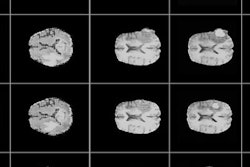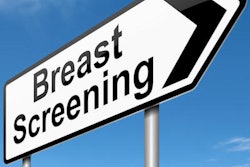Dear AuntMinnieEurope Member,
Brexit looks certain to have major implications for the practice of radiology and nuclear medicine in the U.K., and it's likely to have at least some effect on the rest of Europe too. The main difficulty, though, is to work out exactly what impact it will have.
More than 18 months have passed since market expert Stephen Holloway last wrote for us about this subject. In a new column, he summarizes the current situation, describes what's changed since early 2017, and speculates a little about the future. Visit the Molecular Imaging Community, or click here.
A large German-led study that looked at radiation dose administered to patients undergoing coronary CT angiography at 61 hospitals in 32 different countries during one month in 2017 has found the dose fell sharply compared with a similar survey 10 years earlier. This outcome is much better than the researchers expected. For the full details, go to the CT Community, or click here.
Artificial intelligence (AI) was a hot topic at last week's International Conference on Medical Image Computing and Computer Assisted Intervention in Granada, Spain. At the meeting, researchers explained how they've trained a type of AI algorithm to generate synthetic abnormal brain MR images. Find out more here.
Meanwhile, it's been a hectic few days in the world of breast imaging. The National Health Service Scotland is contacting nearly 1,800 women following revelations they did not receive invitations to their final round of breast screening. Head to the Women's Imaging Community, or click here.
Also, two vociferous opponents of breast screening, Dr. Peter Gøtzsche and Dr. H. Gilbert Welch, have lost positions in the last week. In Gøtzsche's case, he was removed from the board of the Cochrane group in a controversial action taken at its annual meeting in Edinburgh, Scotland. The change threatens to create a split within Cochrane as proponents of evidence-based medicine take sides. Get the story here.
Finally, a Scandinavian team is reviving the controversial claim that the recent drop in breast cancer mortality is not due to mammography screening but rather the result of improved treatment. The authors say it's time to consider alternatives to mammography screening, but is their recommendation of breast palpation by physicians a realistic option? Click here to learn more.


















